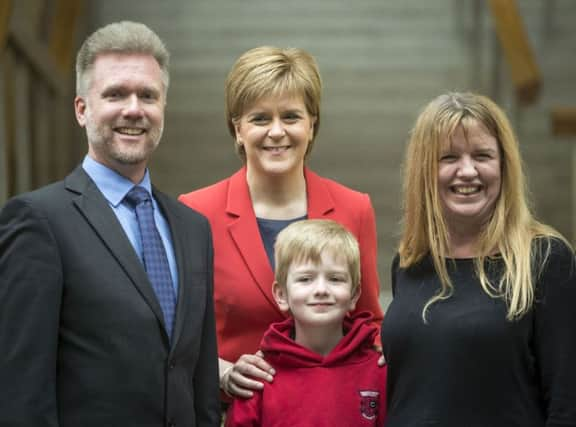Brain family accuse Home Office of betrayal over deportation


Members of the House of Commons home affairs select committee heard from Kathryn and Gregg Brain, who moved to Dingwall in the Highlands with their son Lachlan, now seven, in 2011.
Mr Brain and his son came to Scotland as dependants of Mrs Brain, who was on a student visa at a time when a two-year post-study visa was in existence – but it was later abolished.
Advertisement
Hide AdAdvertisement
Hide AdThe announcement of the discontinuation of the post-study work visa scheme came in March 2011, just three months before the Brain family arrived in Scotland.
Just one day before they were due to be deported on 31 May this year, immigration minister James Brokenshire gave the Brain family leave to remain in the country until August, but they are not allowed to work.
Gregg Brain said the family had applied and been accepted for the scheme in 2010, and did not become aware of the changes to the rules until 2012 when the issue came up in the press.
Kathryn Brain, who was studying on the visa, was faced with finding a job which meets tougher Tier Two visa requirements, with a minimum salary threshold of £20,800.
She has been offered a job at a distillery which would meet the requirements, and is awaiting the applications being processed. She said: “We just hope it all comes through by 1 August which is our deadline.”
Mr Brain added: “This has by necessity been a seven-year exercise in the planning and the execution.
“They [the Home Office] had to envisage that people would have to plan this far ahead to be able to successfully execute the programme that they provided.
“That is why I felt it was a rather extraordinary breach of trust when we had a letter from Mr Brokenshire which said... ‘applicants should never assume that provisions that are in place at the time of their entry to the UK will continue to be viable options in future years’.”